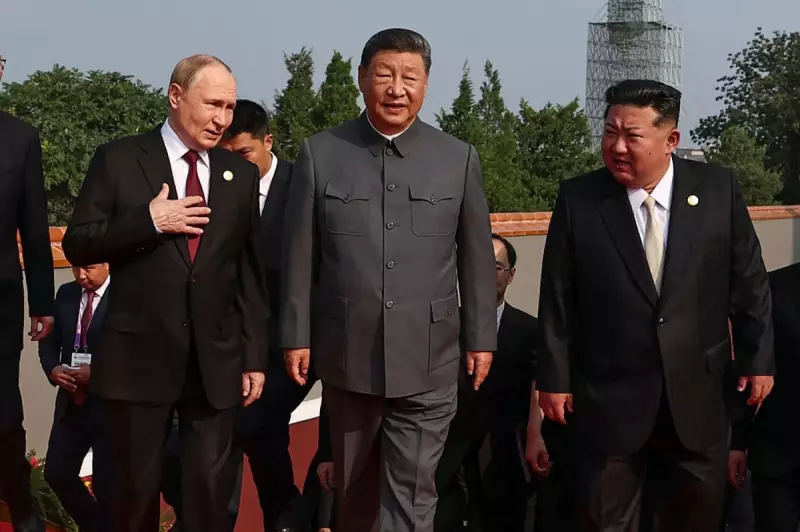
The leaders of three of the world's most formidable authoritarian states have presented a strikingly unified front in a meticulously choreographed display of solidarity. Chinese President Xi Jinping, Russian President Vladimir Putin, and North Korean leader Kim Jong-un convened in Pyongyang, creating an image that analysts suggest could symbolise a fundamental recalibration of global power.
A Calculated Display of Unity
The summit, rich with symbolism and stagecraft, was designed to project an image of a powerful alternative bloc to Western-led alliances. The body language, coordinated gestures, and public declarations were all carefully engineered to convey a message of strategic alignment and mutual support at a time of heightened global tensions.
This meeting represents more than mere political theatre; it underscores a growing convergence of interests among nations that increasingly define themselves in opposition to the US-led international order. The timing, following Putin's visit to North Korea and coinciding with complex global conflicts, sends a deliberate signal to Western capitals.
Strategic Implications and Western Concerns
Western intelligence agencies and diplomatic circles are closely analysing the practical outcomes of this alignment. The partnership potentially creates:
- Enhanced military cooperation: Sharing of technology and resources that could alter regional security calculations
- Economic bypass mechanisms: New trade routes and financial systems circumventing Western sanctions
- Diplomatic cover: Mutual support in international forums to counter Western criticism
- Intelligence sharing: Coordination on security matters that directly challenges NATO interests
The Message to the World
Beyond the immediate strategic implications, the summit serves as potent propaganda. The image of three powerful leaders standing together, despite their nations' varying economic challenges and international isolations, projects strength and durability. It suggests the emergence of a durable coalition capable of challenging what they frequently describe as "Western hegemony."
This development occurs against a backdrop of ongoing conflicts in Ukraine and Gaza, where the positions of China, Russia, and North Korea frequently align against Western approaches. The Pyongyang meeting reinforces their shared narrative of resisting American influence and promoting a "multipolar" world order.
Looking Forward: A New Global Balance?
While the immediate practical consequences remain to be seen, the psychological impact of this display is significant. The visual of these three leaders together creates a powerful symbol of an alternative center of gravity in international affairs—one that could encourage other nations skeptical of Western leadership to reconsider their allegiances.
This summit may well be remembered not for specific agreements signed, but for the potent image it created: a visual manifestation of a shifting global landscape that could define international relations for decades to come.





